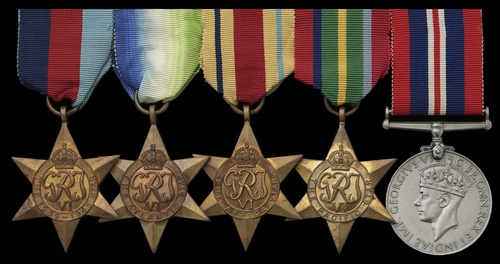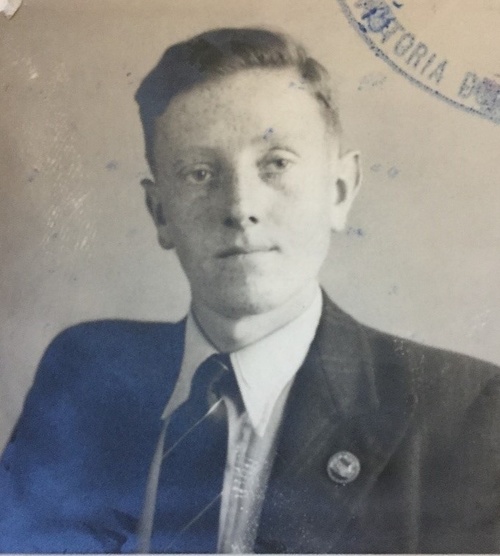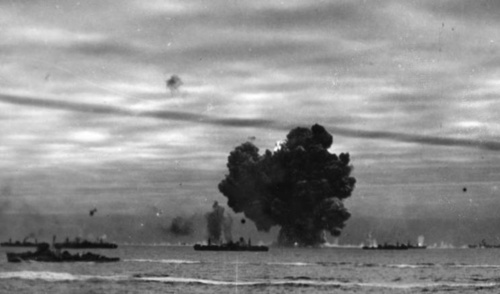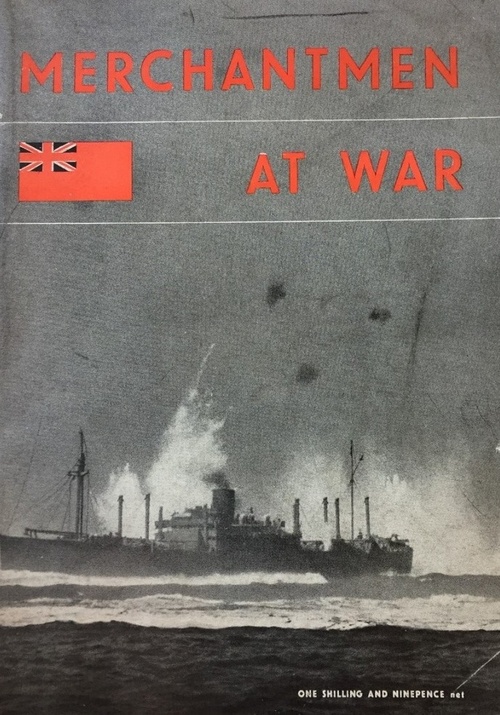Auction: 22003 - Orders, Decorations and Medals
Lot: 411
'As this operation was so important and will perhaps be one of the "epics" of this war, I put forward the suggestion that it would be a nice gesture if each Master of the Merchant vessels who took part could be given a full account of the operation. During this operation it was only possible to see a little of what was happening in one's own immediate vicinity, and it was impossible to view the attacks as a whole … '
Captain Tuckett, in closing his official report on the loss of his command, the M.V. Dorset.
A well-documented Second World War Malta convoy campaign group of five awarded to Able Seaman J. R. Moxley, Merchant Navy, who survived the loss of the M.V. Dorset in Operation "Pedestal" in August 1942
1939-45 Star; Atlantic Star; Africa Star; Pacific Star; War Medal 1939-45, together with dress miniature of the Malta 50th Anniversary Commemorative Medal, good very fine (6)
James Richard Moxley was born in London on 30 August 1923 and entered the Merchant Navy as a pupil at Gravesend Sea School in June 1942.
His first seagoing appointment was as a Deck Boy in the M.V. Dorset, which ship he joined at Liverpool in mid-July 1942, in readiness for her deployment to the Malta run.
Operation "Pedestal"
The importance of Operation "Pedestal" needs no introduction here, Winston Churchill himself requesting regular updates as to the convoy's progress, but for the record's sake it is worth registering the bare facts: of the 14 merchantmen that set out, nine were sunk and three damaged, while the Senior Service's input of 59 escorts - the largest such force ever assembled in defence of a convoy - sustained losses of an aircraft carrier, a cruiser and a destroyer, as well as having another half a dozen ships damaged.
The gallantry of M.V. Dorset's crew in the operation is reflected in her resultant honours and awards, namely three D.S.C.s, three D.S.M.s and three "mentions", in addition to no less than five awards of the prestigious Lloyd's Bravery Medal.
Of events on 13 August 1942, Dorset's master, Captain Tuckett, takes up the story in his official report:
'The officer on the bridge saw Spitfires overhead but was unable to communicate with the guns crew and within a few minutes one of our Spitfires was shot down. At 1140 local time [on 13 August 1942] we were again attacked by enemy aircraft and the Dorset was near missed by three bombs on the starboard side, close to the bridge; another stick followed on the port side abreast of the engine room and No. 4 hatch. Water immediately entered the engine room from the starboard side, the piston cooler and refrigerating discharges were fractured and a large hole was blown into the ship's side in the way of the main and refrigerating injections. Smoke was seen coming from No. 4 port forward … I think probably one of the bombs had penetrated into No. 4 hold. As the fire was unreachable owing to other cargo being in the way, and was in close proximity to the high octane petrol, and also as the engines and pumps were out of commission, I decided to abandon ship immediately. This was done and the whole ship's company was taken on board H.M.S. Bramham.
After consultation with the Commander of this destroyer it was decided to take the Dorset in tow. A number of volunteers returned to the ship with a rope to pull the tow line aboard, but another air attack was signalled before the line could be secured, so the volunteers were ordered to leave the Dorset and re-join the destroyer. While on board it was found that the water was above the cylinder heads of the engine and No. 4 shelter deck was ablaze.'
Tuckett continues:
'H.M.S. Bramham, with my crew on board, went to assist H.M.S. Penn who was standing by the S.S. Ohio which was stopped about 5-6 miles distant. At 1630 aircraft again attacked the Dorset, dropping bombs astern of her and then making a direct hit on the fore deck which immediately burst into flames. The ship settled by the stern and at 2000 she disappeared stern first.'
Subsequent career
In October 1942, Moxley joined the M.V. Sussex as an Ordinary Seaman and he remained similarly employed until removing to the M.V. Orari in March 1943. She was to prove his last wartime appointment and he finally came ashore as an Able Seaman in March 1950.
Sold with a quantity of original documentation, comprising:
(i)
The recipient's Continuous Certificate of Discharge (R260211), with portrait photograph, being a complete record of his ship appointments in the Merchant Navy; together with his National Union of Seamen Contribution Book.
(ii)
A letter from the New Zealand Shipping Co. addressed to the recipient's father, dated 25 August 1942, in which he is informed of his son has been embarked for the U.K.; together with a pass for the latter to come ashore at Glasgow 'without papers'.
(iii)
Register and Record Office of Shipping and Seamen, letter to the recipient dated 25 August 1946, confirming his campaign medal entitlement as per above, and enclosing lengths of ribands.
(iv)
Merchant Navy A/A Gunnery Course Certificates of Proficiency (2), the first dated 6 October 1942 and the second - for Oerlikon guns - 7 October 1943; together with wartime Notes on Gunnery for D.E.M.S.
(v)
New Zealand Shipping Company, service contract, dated 1 December 1947, and Merchant Marine Certificate of Competency as an Able Seaman, dated 9 March 1950.
(vi)
A quantity of typed and handwritten reports in respect of a post-war "Pedestal" reunion in Malta, together with a letter to the recipient regarding a 60th Anniversary gathering at Trinity House, dated 16 September 2002.
Subject to 20% VAT on Buyer’s Premium. For more information please view Terms and Conditions for Buyers.
Sold for
£240
Starting price
£160











